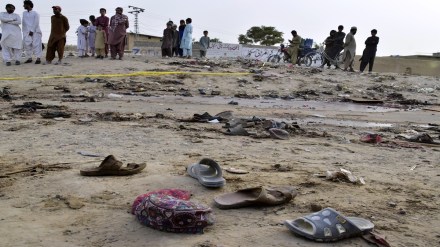The death toll in Pakistan’s mosque blast has climbed at least 59 lives, prompting a government pledge to identify the culprits while implicating India’s intelligence agency. The devastating explosion rocked a mosque in Mastung, Balochistan, during a procession marking Prophet Mohammad’s birthday, leaving destruction in its wake.
Accusation Against India’s RAW
Pakistani officials persist in their allegations that India sponsors violent groups within Pakistan, a claim that India consistently denies. Interior Minister Sarfaraz Bugti blamed India’s Research & Analysis Wing (RAW) intelligence agency in the suicide attack, although specific details and evidence were not provided. Bugti has announced a unified effort involving civil, military, and other institutions to combat those responsible for the Mastung suicide bombing.
India’s Response
India’s foreign ministry and government spokesperson have remained silent, refraining from immediate comments in response to the accusations.
Rising Casualties
The death toll has risen due to seven additional casualties in hospitals since the incident, while others remain critically injured, according to Wasim Baig, the spokesman for Balochistan’s health department.
Second Mosque Attack and Investigation
A separate mosque attack in northern Khyber Pakhtunkhwa claimed at least 5 lives. Police initiated an investigation, analyzing the DNA of the suicide bomber.
Unclaimed Responsibility
No group has claimed responsibility for either of the attacks, creating uncertainty surrounding the perpetrators. The Pakistani Taliban, known for deadly attacks in Pakistan, has disavowed any involvement in Friday’s blasts, adding to the mystery surrounding the attacks.
Impact on Elections
A surge in militant attacks in Pakistan’s western provinces, previously targeting security forces, now poses a threat to election preparations and public campaigning leading up to the national vote in January.
(With Reuters Inputs)
